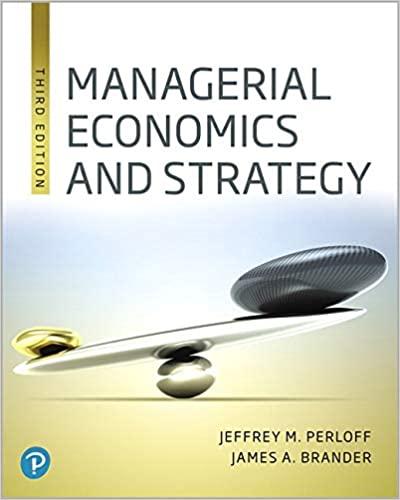Question
1. An investor who owns foreign currency will buy a put option on the foreign currency (the right to sell the foreign currency for a
1. An investor who owns foreign currency will buy a put option on the
foreign currency (the right to sell the foreign currency for a certain number
of units of domestic currency) if
a. he expects the domestic currency to appreciate.
b. he expects the domestic currency to depreciate.
c. currency markets are volatile.
2. Suppose the domestic money supply rises and the exchange rate is
initially at its PPP value then if the exchange rate is a random walk
a. short term deviations from PPP will result.
b. long term deviations from PPP may result.
c. both (a) and (b).
3. If supply side economics is incorrect tax cuts in the U.S. may
a. raise the U.S. trade deficit.
b. raise U.S. inflation.
c. both (a) and (b).
4. Suppose capital is perfectly mobile and the foreign stock market ex-
periences sustained rises while the domestic stock market remain nearly flat.
If the exchange rate is floating then the supply-demand model of exchange
rates predicts
a. a rise in E and a fall in XM.
b. a rise in XM and rise in E.
c. jumps in the domestic interest rate and a fall in XM.
5. Suppose everyone has rational expectations and the domestic government announces a rise in its money growth rate then
a. the rate at which the domestic currency depreciates rises in the short run and more in the long run.
b. domestic inflation rises immediately to the new money growth rate.
c. domestic GDP rises in the short run.
Step by Step Solution
There are 3 Steps involved in it
Step: 1

Get Instant Access to Expert-Tailored Solutions
See step-by-step solutions with expert insights and AI powered tools for academic success
Step: 2

Step: 3

Ace Your Homework with AI
Get the answers you need in no time with our AI-driven, step-by-step assistance
Get Started


